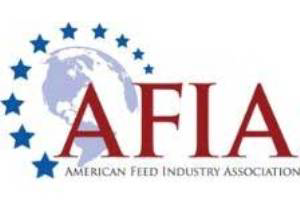Relaxed trade barriers would benefit US feed industry

The American Feed Industry Association (AFIA) is happy that US Congress is to negotiate trade deals, which expired in 2007. If the Congress decides to conclude negotiations around the Trans-Pacific Partnership (TPP) and to strengthen the current negotiations with the European Union on the Transatlantic Trade and Investment Partnership (TTIP), benefit for the U.S. feed industry are assured.
“The future growth of the US feed industry lies in exports, whether it be directly, or indirectly through meat and dairy exports, and the feed industry needs the support of the administration to remove barriers to trade and enforce trade rules,” said Gina Tumbarello, AFIA manager of international trade. “The most opportunistic path for this is through free trade agreements such as TPP and TTIP with the European Union.”
TPP addresses new and emerging trade issues such as the as elimination of many non-tariff trade barriers, i.e. incompatible biotech and food and feed sanitation regulations. While U.S. exports to the Asia-Pacific region have grown, the share of U.S. trade in the region has declined relative to other countries due to many countries in the region having bilateral or regional free trade agreements (FTAs) that give their exporters an advantage over their U.S. competitors. While the U.S. already has bilateral agreements with six of the 12 TPP partners, TPP is a means to level the playing field for U.S.
TTP could also benefit trade relations with Japan. As one of the trade partners under TPP, most animal feed already enters Japan, duty free, however Japanese barriers to US livestock exports are much more restrictive. Removing such barriers under the TPP agreement would offer opportunities to expand US exports of meat and dairy products to Japan. The U.S. would ultimately be exporting more feed to Japan in the form of value-added products such as meats and dairy products, and those sales would benefit the U.S. feed, livestock and poultry industries and their customers.
“Without Congressional extension of the Trade Promotion Authority, the nation’s current negotiation power is limited. U.S. negotiators lack the authority, ability and leverage they need to negotiate free trade agreements that will have the greatest value to the US economy and its industries. Negotiating countries must have confidence in US negotiators and their ability to be held to the terms of any negotiated agreement,” added Tumbarello.
The final TPP and TTIP agreements as well as all future trade agreements depend heavily on the capacity of the United States Trade Representative to effectively conduct trade negotiations, which includes extension of the TPA. Passage of a TPA sends a clear message to our trading partners that USTR is negotiating within the rules and objectives formulated by Congress.











